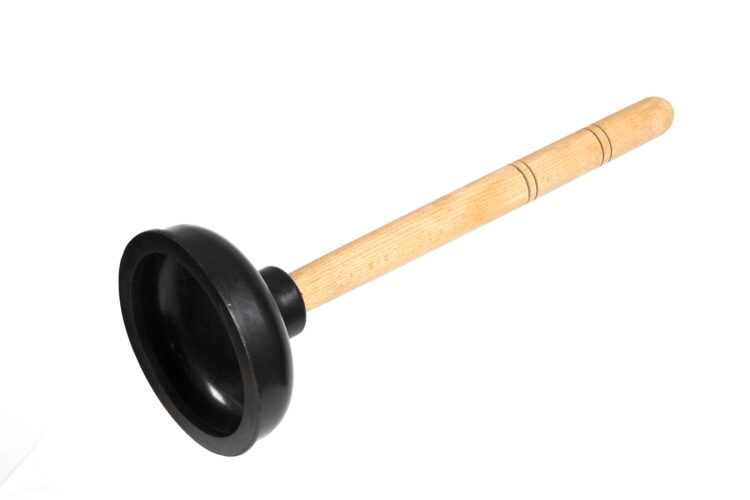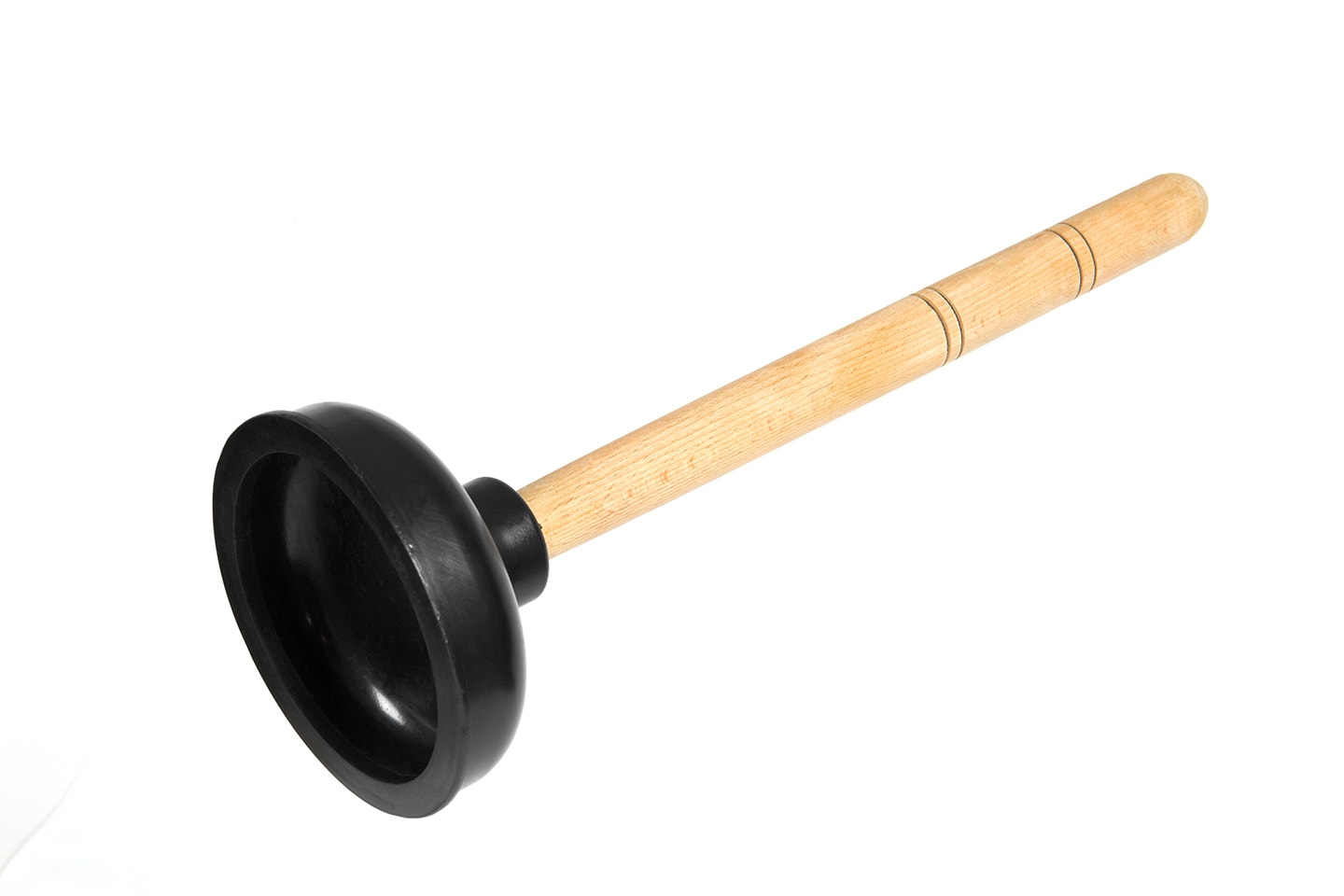Cleaning drains can be one of the most tedious jobs in a household for many, but it’s certainly not something that should be neglected – with regular cleaning and proper use, your drains will function properly for a long time. If, for one reason or another, drain cleaning is neglected, there is a high probability that the pipework will become blocked and the water will not be able to flow in its normal way. In the worst case, the blockage can be so significant that home repairs are not enough and a plumber must be called in. So regular drain cleaning not only helps to keep your pipes in good working order, but can also help you save money on plumbing costs.
Blocked drains – what can help?
If the drain is not draining properly or at all, this is usually a sign of a blockage. The water may be completely stuck in place, or the drain may be so badly drained that it remains on the floor or in the sink for a long time. The blockage can also cause unpleasant odours to rise from the sewer around the house. Although drain blockages can seem like a nuisance, there are fortunately a few effective ways to unblock a drain yourself.
1. Pour boiling water down the drain
One of the main causes of kitchen drains clogging is usually food waste, the worst of which is grease, which clogs the drains when it hardens. Pouring boiling water down drains can help melt hardened fat. It’s also worth mixing a few drops of dishwashing liquid into the boiling water to help break down the consistency of the grease, making it easier to remove clogs.
Note! Keep in mind that sinks made of porcelain can be damaged if too much hot water is poured into them. If possible, try to drain hot water directly from the tap, and if the water from the tap is not hot enough, pour boiling water carefully directly into the drain hole, avoiding splashing boiling water around the sink. Also protect your own hands and always handle boiling water with care.
2. Clean the drain with baking soda and vinegar
Did you know that baking soda and vinegar can also work wonders for unblocking drains? This effective combination is a well-known tool in many homes because, despite being ecological, the combination of vinegar and baking soda is very effective and works as a remedy for many different problems.
The effectiveness of vinegar and baking soda is based on their powerful effervescence, which triggers a reaction that removes dirt and corrodes scale. The combination also makes it possible to gently unblock potential sewer blockages without harming the environment.
Pre-measure 1 dl of baking soda and 2 dl of vinegar. First pour the baking soda directly down the drain and then add the vinegar. Let the mixture sit in the drain for about 5 minutes and then rinse by pouring hot water from the tap down the drain. If the drain does not open after the first treatment, you can repeat the treatment several times.
3. Open the drain using the drain pump
A third effective home remedy for unblocking a blocked drain is a sewage pump. The power of a sewage pump is based on the pumping movement, whose suction power unblocks blockages stuck in the pipework. However, a sewage pump can put a strain on the plumbing, so care should be taken when using it, especially if the blockage is in the sink.
Place the drain pump over the blocked drain and start with a precise, regular pumping motion. It’s a good idea to listen to the sounds coming from the drain between pumping, as a blockage opening can cause a sound similar to the flow of water, which will let you know when to stop pumping.
4. The last straw: drain unblockers
If the above home remedies don’t work, you can try a drain cleaner as a last resort. Keep in mind, however, that these substances are highly corrosive and should be handled with protective gloves and goggles. Read the instructions on the packaging carefully and follow the instructions on the packaging exactly.
If none of the above methods clear the blockage, contact a plumber immediately for mechanical drain cleaning. It’s worth remembering that home repairs usually work for small and more temporary blockages, and challenges with opening the drain may indicate that there are bigger problems in the plumbing. In this case, it is wise to call in a professional, as excessive use of sewage additives or other aggressive treatment can permanently damage the condition of the pipes.
Prevent blockages
It is possible to prevent sewer blockages. In the kitchen, for example, the worst sources of blockages are often food residues and fats. In the bathroom, loose hairs and hairs on the skin are the cause of blockages. The best and most effective way to prevent sewer blockages is to prevent things from entering the pipe system that could block it.
We’ve put together a few tips below to help you keep your drains in good condition:
- After a shower, clean out any loose hair and hairs that are trapped in the floor drain. Especially in households with long or thick hair, it is worth cleaning the floor drain very regularly.
- Check the functionality of the odour trap at regular intervals. If the drain smells frequently and it is not due to a blockage in the drain, this may indicate that the diffuser is not working properly.
- Before washing or soaking dishes in the sink, wipe greasy dishes and empty even small food scraps into the bio-waste.
- Never pour ham or frying fat down the drain. The large amount of fat used in cooking should be cooled and then poured into a cardboard box, for example, where it can be recycled properly.
- Install a separate filter in the bathroom floor drain to prevent hair and other waste from going down the drain.
- Regularly service the plumbing by pouring as much hot water as possible from the tap directly into the drain.
- Keep a separate bin in the toilet and bathroom areas where all extra waste, paper and toilet paper shelves can be easily thrown away.
What can and cannot be put down the drain?
Sometimes it can be unclear what you are actually allowed to put down the drain. We’ve put together a short and concise list of what you can and can’t put down the drain.
May be put down the drain:
- Toilet paper
- Dish and laundry detergent
- Cleaning water
- Washing water e.g. about the sauna
- Urine and faeces
Do not put down the drain:
- Food sources
- Fat
- Greenhouse masks
- Cotton buds and cotton buds
- Make-up remover or other cleansing cloths
- Sanitary towels or tampons
- Toilet paper shelves (Note! Not even those marked flushable)
- Economic paper
- Diapers
- Condoms
- Medicines
- Cigarette butts and matches
- Paints or other chemicals
As you can see, the list of things that should not be put down the drain is long, and by no means ends with what we have mentioned above. A good rule of thumb is that nothing should be put down the drain except water and what has been eaten and drunk – urine and faeces.
Do the drains in your home block often? How to prevent problems
The best way to prevent sewer blockages is to use them properly and clean them regularly and carefully. However, careful and conscientious cleaning is not always enough, as the plumbing system also ages. Sewer pipes have a lifespan of around 30-50 years, and persistent problems despite cleaning and proper use can indicate that the pipes are in poor condition.
If your pipes are more than 30 years old or suffer from persistent blockages or other problems, you may need to have a professional drain survey carried out. It is also the only reliable way to determine the condition of the plumbing. If you have any doubts about the condition of your pipes, contact a professional in your area to find out if you need to have them photographed.


















































































